It's complete and utter poppycock. A politically-fueled, hateful rant.
These are the actual facts about MARL and Valley Link, written by an experienced electric industry professional with decades of experience.
Modernize implies different technologies, however MARL is the same old technologies. MARL is not modernizing the electric system. It is robbing from the ratepayer to make the rich richer.
Question: Can MARL make West Virginia an energy leader?
Although transmission assets can help strengthen West Virginia’s role as an energy leader, cheaper non-West Virginia resources are planned to be connected to MARL to wheel their cheaper power, using MARL like an expensive extension cord. Without large loads coming to West Virginia, it is more likely that other states will strengthen as energy leaders and leave West Virginia holding the bag with electric costs and land obstructions
Question: Does MARL benefit West Virginia?
MARL only benefits Virginia data centers. MARL is a wolf in sheep's clothing. MARL won't benefit West Virginia first. MARL will not allow our West Virginia power plants, including Mount Storm, Harrison, Fort Martin, Longview, and others across the state to operate at full capacity. The regulations and PJM's 2025 Regional Transmission Expansion Plan shows many projects to transmit, or "wheel" power through MARL from other states like Indiana, Ohio, and Pennsylvania. The regulations require PJM to wheel the cheapest power first. West Virginia's customer-serving utilities have a requirement to serve the West Virginia customers first. The rumored 435 megawatts of excess generation capacity (that may not be high enough) is sitting idle because cheaper power is required to be dispatched first, while considering line ratings. The Virginia load need is so great, that Virginia's load is causing system reliability issues that could be resolved with Virginia's generation policy matching Virginia's large load incentives.
MARL and Valley Link will NOT change that. In addition, MARL will be at the ratepayer's expense, including ratepayers in West Virginia and other PJM states, to build, maintain, and wheel power to unique large load customers. PJM is already talking about using load-shedding more operationally than in emergency with respect to large data center loads. Plus, when those large loads shift power use, that can cause automatic load shed. Thus, to keep our electric system reliable, it is best to site large loads near large generators with available capacity.
Question: What about new generation stations being built in West Virginia, such as Longview's 1,200 megawatt gas fired power plant in Maidsville, and FirstEnergy's plans for another 1,200 megawatt combined cycle facility?
The rumor that these multibillion dollar projects mean jobs for West Virginians in the gas fields, construction trades, and power generation is not true. Ditto the claim that those plants only make sense if the power they produce can reach consumers, and that requires MARL and Valley Link. The ratepayer needs to remember how FirstEnergy's coal-fired 1,710 net megawatt Hatfield's Ferry Power Station was replaced by gas generators of similar capacity that require only a handful of people to operate, if that (some gas plants are unmanned). This switch to gas plants causes about 200 plant jobs lost, along with the operational support business jobs. Thus, while the rumor may sound logical, it doesn't account for the big picture.
Question: Would MARL and Valley Link be critical to Governor Patrick Morrisey’s 50 by 50 plan to triple West Virginia’s power generation to 50 gigawatts by 2050?
The Governor's plan may work if West Virginia large generators fed large loads in West Virginia. Better yet, build large loads where power plants once existed to leverage the existing transmission and cooling water sources. That will bring the economic growth that West Virginia needs, keep a consistent tax basis, and help keep West Virginia-connected generators operating to lower transmission flow costs. Transmission assets depreciate over 40 years, data centers do not. Look how your home has appreciated over time. If we want taxes to help us long term, we need the load user to be in West Virginia.
Question: Will West Virginians will be charged for this project and pay higher rates?
MARL will make Virginia's electric system more stable and richer, not West Virginia's. Which, if Virginia wants power, Virginia needs to stop closing power plants, and start building them. West Virginia's grid is stable as is. When new large load comes to West Virginia that exceeds the grid's available capacity, then build what is needed.
The rumor monger needs to get educated on PJM cost allocation regulations and West Virginia state regulations. The West Virginia Public Service Commission has shielded West Virginians from some costs through West Virginia regulated generators, whose first task is to serve the West Virginia utility's customers. However, the West Virginia PSC cannot shield ratepayers from all costs since some costs come from PJM, including the multi-billion dollar costs of building MARL and Valley Link.
AGAIN, the best solution is to build large load where the generation is, right here in West Virginia. Then there is no need to build lines that do not serve West Virginia's needs or economic future.
Question: Will the project destroy family land and reduce property values?
Part truths are dangerous. Landowners get a one time payment that doesn't represent the total land devaluation, restrictions on land use, or the money flowing over the transmission lines. Those who sign too early do not get anywhere close to what they should get. The placement of transmission lines decreases property values. If you consider properties whose homes are islanded between transmission lines, that decreases that homes' value even more. It may sound admirable to spare the home, but if the home can 'see' both lines, it becomes a big burden to that home. Until you have lived beside a transmission line, you may not consider the audible noises and the emitted electric waves that can't be seen but are real. To picture this on a smaller scale, can you see how your wireless phone charges or how you get static in your hair?
Question: Are there long term jobs or benefits for West Virginians?
MARL will support construction jobs and occasional permanent maintenance positions, but those jobs are short term and require specialty workers that typically are contracted, often from out-of-state. As we have seen with the existing transmission lines, there is no daily staff to keep care of transmission lines. Transmission line operation and maintenance is done remotely and by batched jobs based on maintenance intervals and system monitoring. The only difference from the existing lines will be that MARL will be managed by Florida's NextEra.
The MARL line will not bring the long term West Virginia jobs that West Virginia needs. MARL cannot keep West Virginia coal and gas jobs alive or plants to stay open since MARL will be connected to resources outside of West Virginia. Longview's and FirstEnergy's 1200 megawatt plants (2400MW combined) are a response from the PJM capacity auction to serve load in Virginia through both MARL, and through the 138kV system, hence the proposed PJM breaker at the 500kV BlackOak Substation and the proposed PJM substation near Brandonville. PJM's plan is to ship power through West Virginia to Virginia via the 500kV and 138kV lines.
The 138kV lines are also connected to other states to send other states' power. In addition, the new PJM 2025 RTEP plan is calling for building two (2) MARL lines now.
Both Morgantown area announced gas plants are multibillion dollar plants that will depreciate to the ratepayer's electric bill to serve Virginia. This means that West Virginians will pay the entire cost to build those plants. Those plants will have very few jobs for West Virginians since gas plants have little to no staff and gas gets transmitted via an interstate transmission system.
These interstate gas transmission systems wheel gas from other states under the same least cost principles as electric is moved.
Again, those plants are being built at the ratepayers expense to serve unique Virginia large loads at West Virginia's expense. The electric rates will include costs to build, maintain, operate, and transmit power, including the cost of electric line losses that occur over distance. So, once a transmission line is needed, just know that electrons gets lost over distance, and that is passed to the ratepayer's bills too. Nothing like paying for something that is lost and can't be seen.
It would be best if West Virginia plants are serving West Virginia load to keep the money in West Virginia. It may even be best for West Virginia to leave PJM to preserve our generation, boost the West Virginia economy and stop the PJM rate hikes that are needed for areas that don't benefit West Virginia. If West Virgina has all this dependable coal power, then why not keep it to bring wealth and prosperity to West Virginia?
Question: Will the project hurt tourism and recreation?
MARL will destroy scenic areas and can hurt the state’s tourism industry. People come to West Virginia to enjoy the land and mother nature. Tourism is West Virginia's bread and butter. MARL will be hard to miss with its height and width traversing our West Virginia terrain.
MARL started as a 200 ft. wide right-of-way project and now is being extended to 400 ft. to add a second MARL line (see PJM 2025 RTEP plan). This project change goes to show that anything presented or discussed needs to be specific whether it's a single circuit MARL 500kV line, or what will be in that easement. Some land owners have reported that NextEra is now indicating that MARL needs 200 ft. plus 100 ft. on both sides. This NextEra tactic is just wrong. One 500kV line requires 200 ft. ground to sky clearance by regulations. That PJM 2025 RTEP plan is still out for bid. But NextEra is trying to position themselves to win the second MARL line bid by misleading landowners, which can lead to unjust landowner compensation.
Question: Are there are health risks from electromagnetic fields?
With no studies cited on electric magnetic frequency (EMF), it is hard to relate any "facts" to the MARL line. What is interesting is that the rumor mongers validate that EMF is real and that EMF has a harmful threshold. EMF increases with power flow. Not sure what the studies assessed, but the MARL line will island some homes and will interact with any other lines that it is near. It is not common to see homes islanded by extra high voltage lines. Thus, EMF is a valid concern with the MARL project, as even the rumors admit
Question: Do power lines make noise and interfere with cell phones?
NERC Reliability Standards do not address the "crackling sound during rain" or noise during high load transport days. The MARL lines, and even lower voltage lines, have and will interfere with communications equipment.
Question: What's the bigger picture?
Groups like West Virginians Against Transmission Line Injustice (WATI) are not just opposing MARL, but are looking for the best solution for the ratepayers, the landowners, and West Virginia overall.
If this group succeeds, West Virginians will maintain power reliability since West Virginia's transmission system and generator supply is robust and reliable with enough breakers between West Virginia and Virginia to open and stop any Virginia-caused power grid blackout. It is the Virginia system this is not reliable due to Virginia's changes in energy policy that forced plant closures that once fed that area, and blocked building new ones. So when you hear that MARL is needed for the region's electric reliability, just know that it is the PJM Region, a.k.a. Virginia, and not the West Virginia Region.
The unreliable PJM region is being caused by Virginia and should be paid for by Virginia. Why should West Virginia suffer? Governor Morrisey’s 50 by 50 plan to triple our energy production to 50 gigawatts by 2050 can succeed if large load customers flock to West Virginia. West Virginia large loads support West Virginia coal, gas, and West Virginia's economic growth. The shorter the electricity flows, the lesser costs due to electric line losses.
Here's Bottom Line:
- MARL and Valley Link are threats to West Virginia land, tourism, and cause expenses to West Virginia ratepayers. They bring economic growth to Virginia at West Virginia's expense.
- West Virginia's electric system is robust and reliable today. West Virginia has several extreme weather dependable coal generators, Virginia does not. West Virginia has a modern transmission system to deliver West Virginia generation to West Virginia customers. Makes one wonder why doesn't West Virginia leave PJM? PJM has not delivered cheaper rates as originally promised. Some of this has been caused by PJM approving generation retirements and causing an endless loop of costs to the rate payer.
- MARL is designed to take electric from other states. Sure, MARL may throw a bone to West Virginia coal on extreme weather days when cheaper generators can't operate due to their ambient weather designs, but that can't be counted on since there is so much multi-state, lower cost generation interconnected (now and planned) to MARL's starting point. There seems to be a lot of false hope that needs to be refocused on the bigger picture and state and federal regulations.
- A brighter future for West Virginia will surface with new West Virginia incentives for new load and large load to locate in West Virginia. The facts are clear.
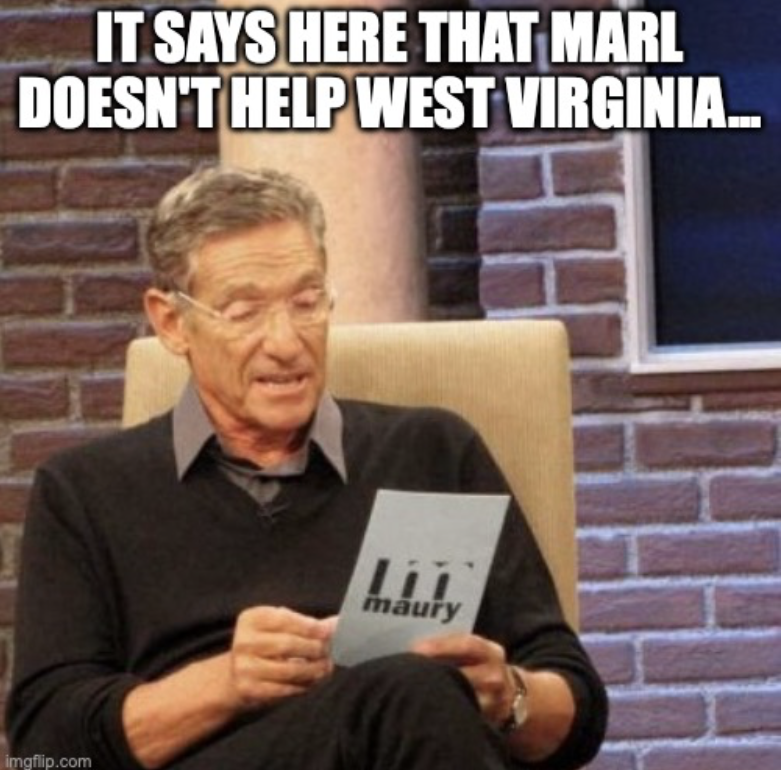
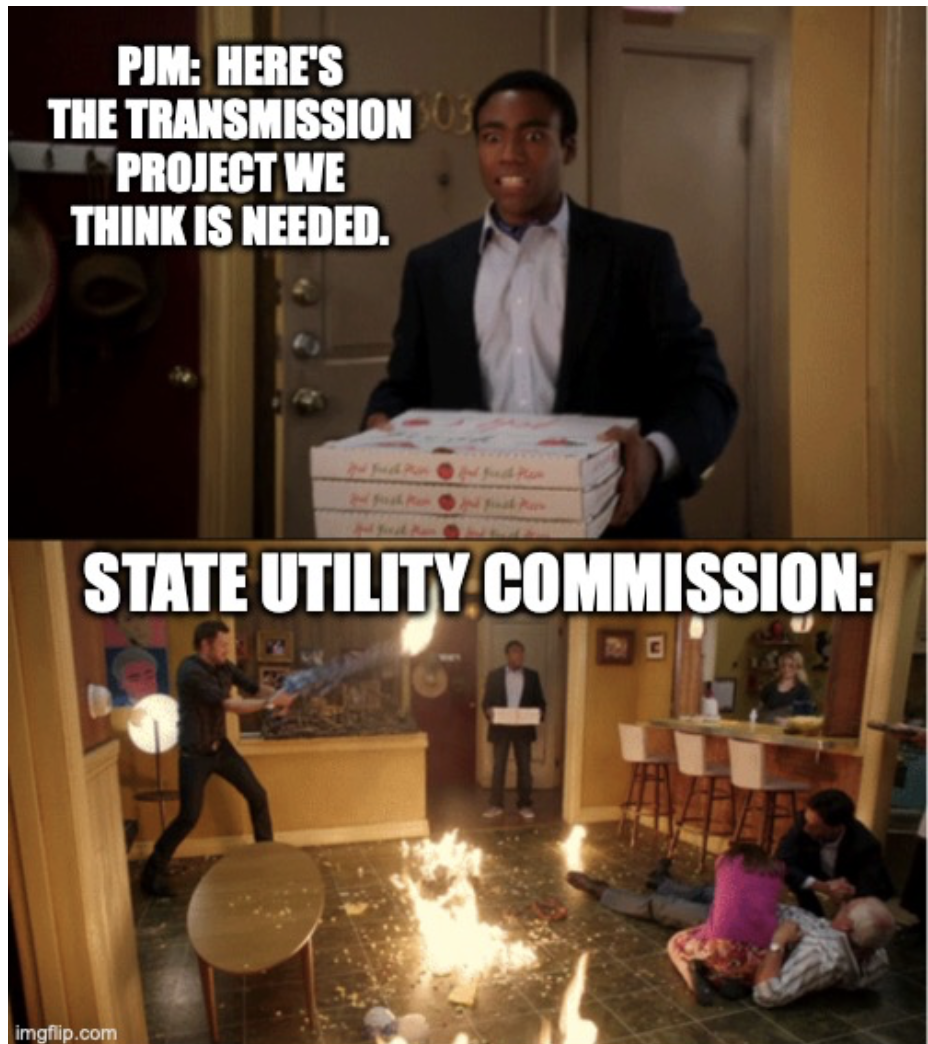
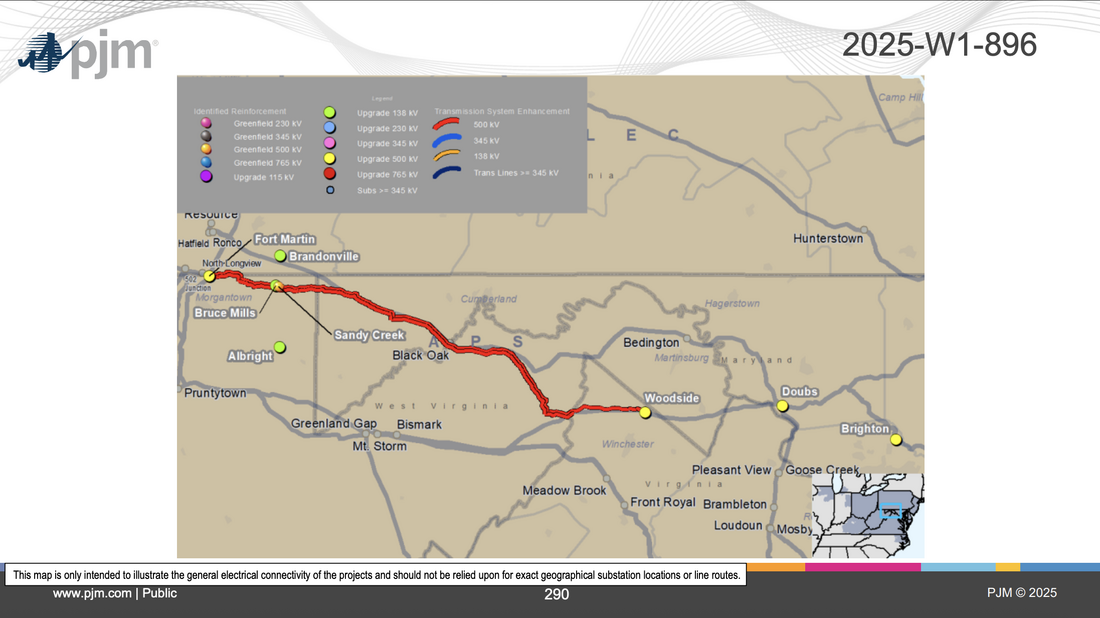
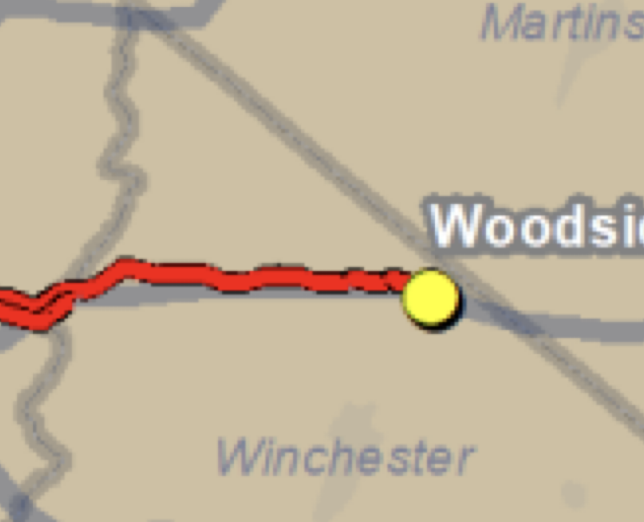
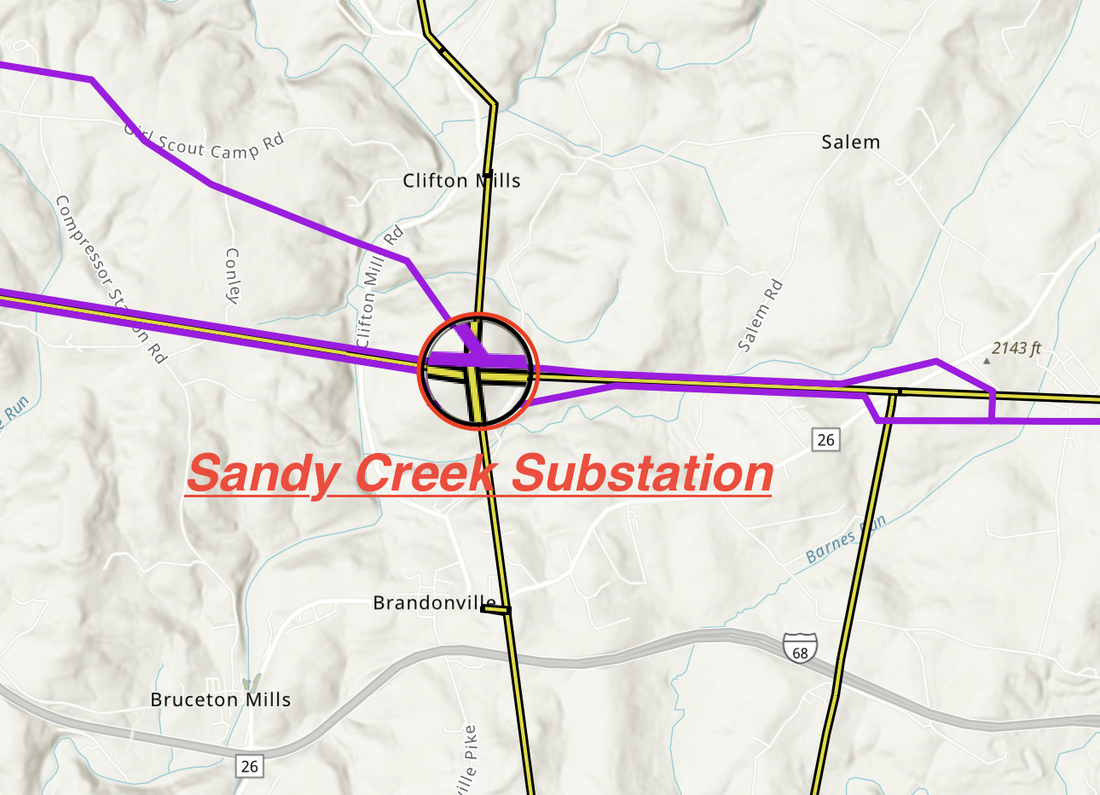
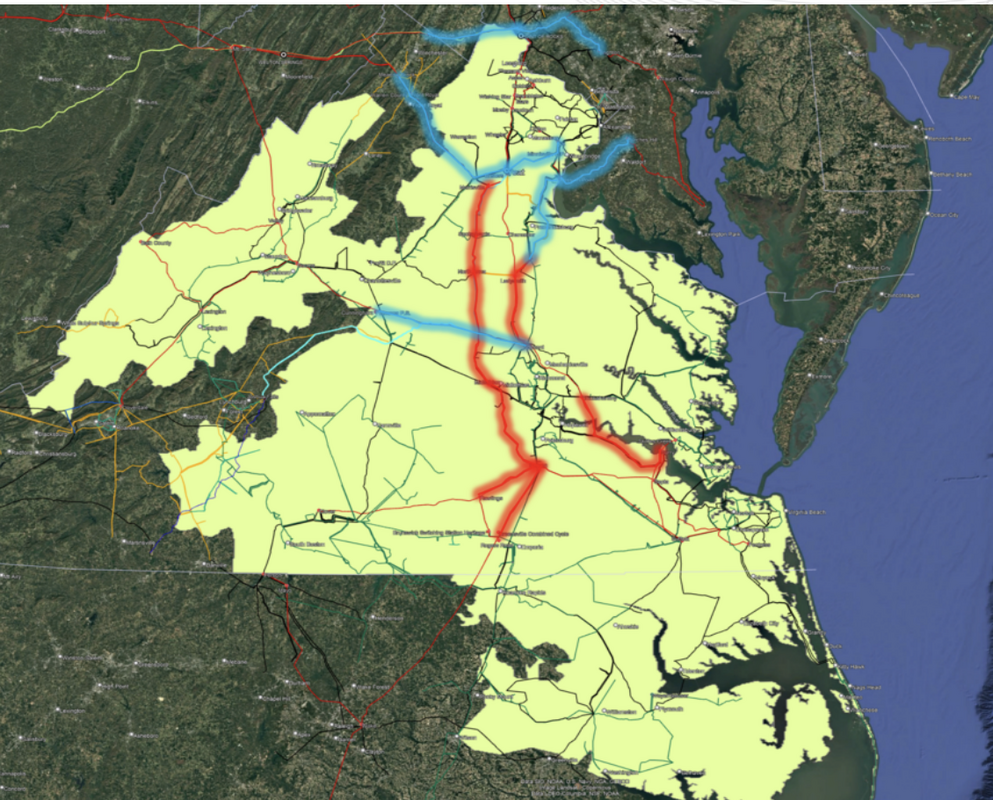
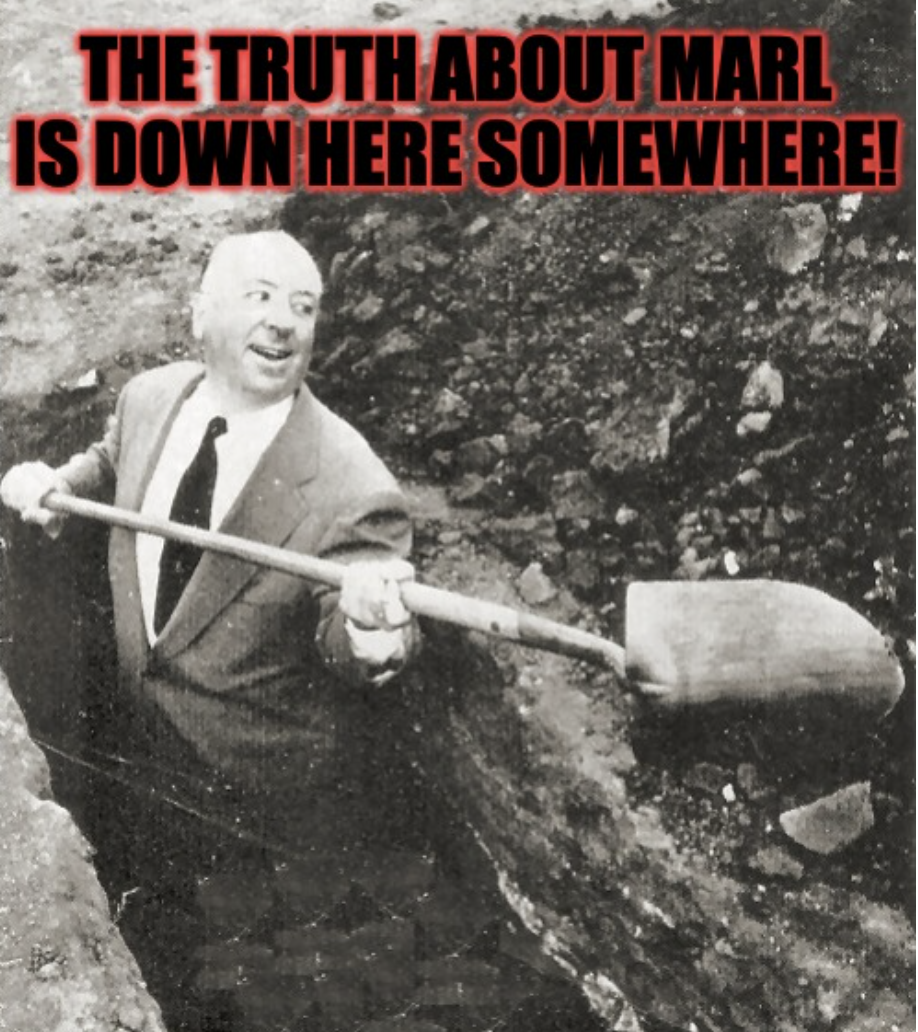
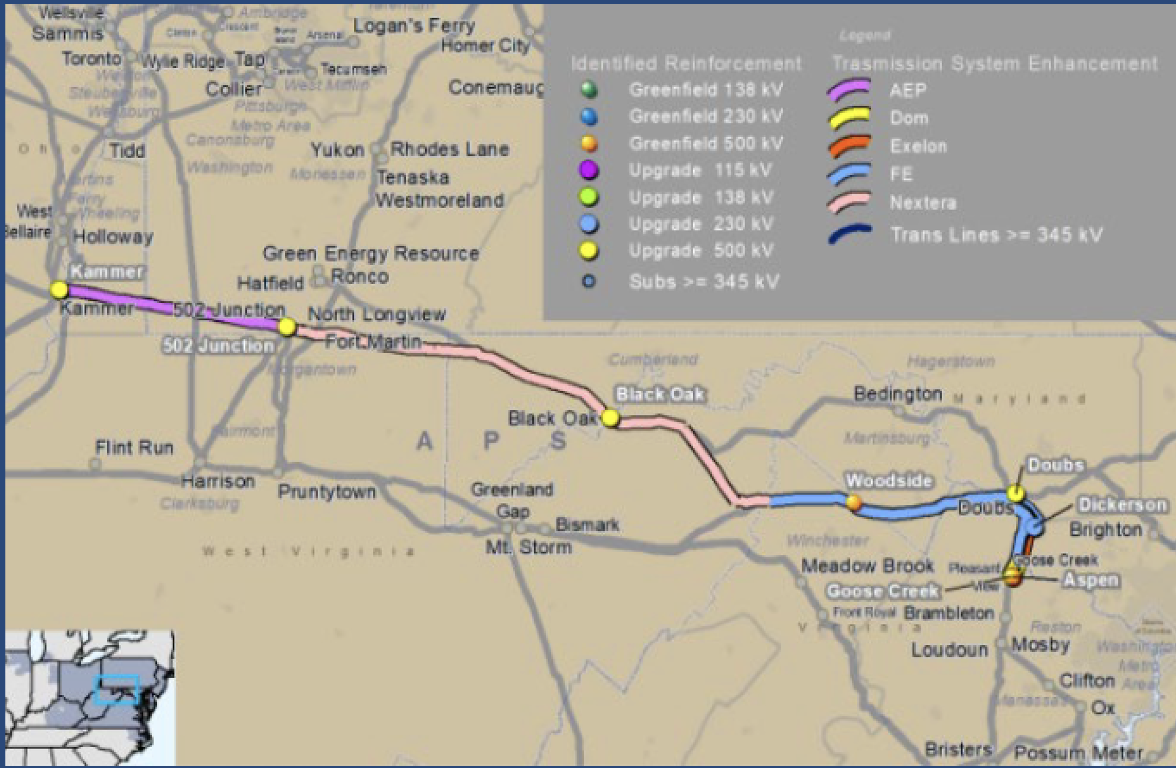
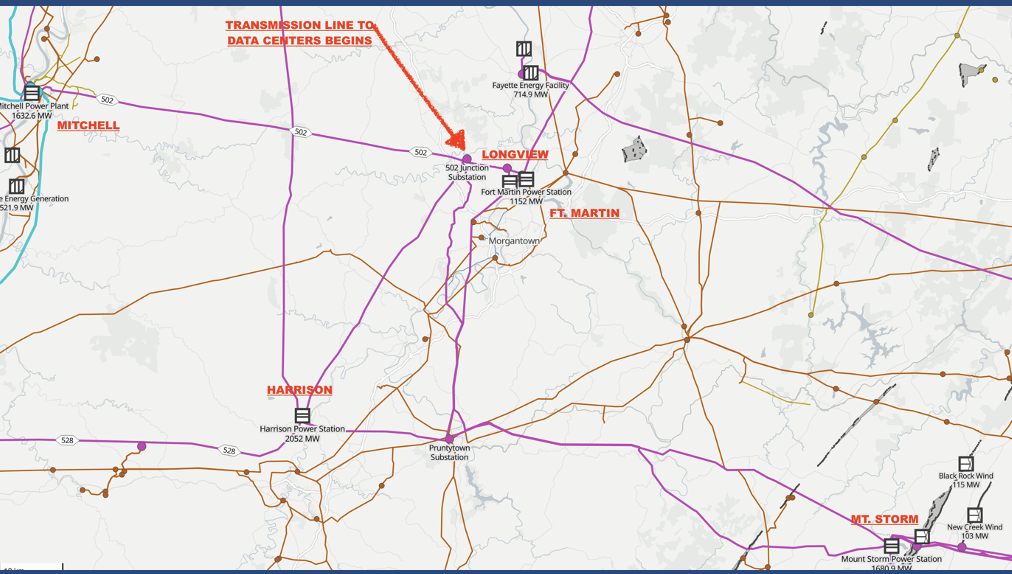
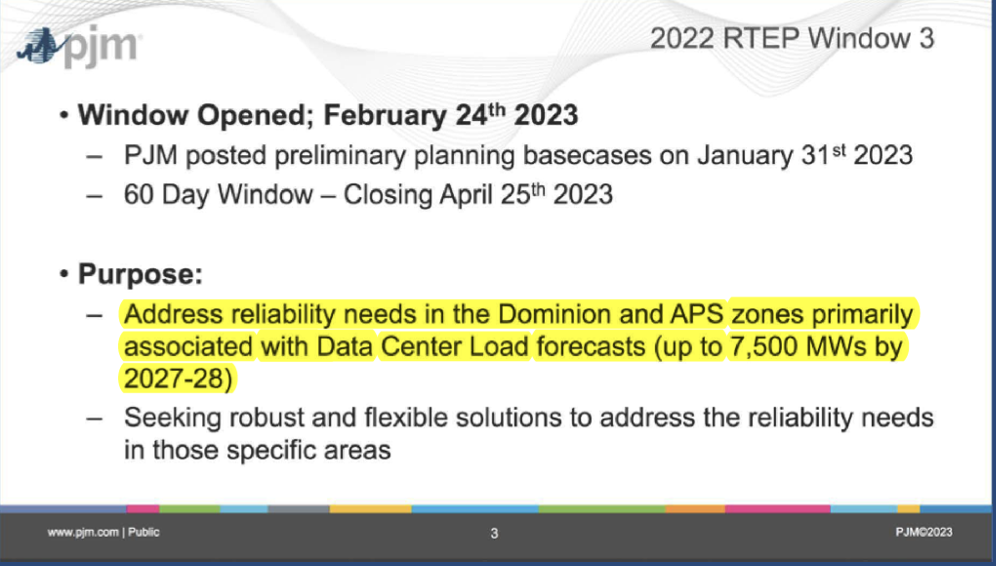




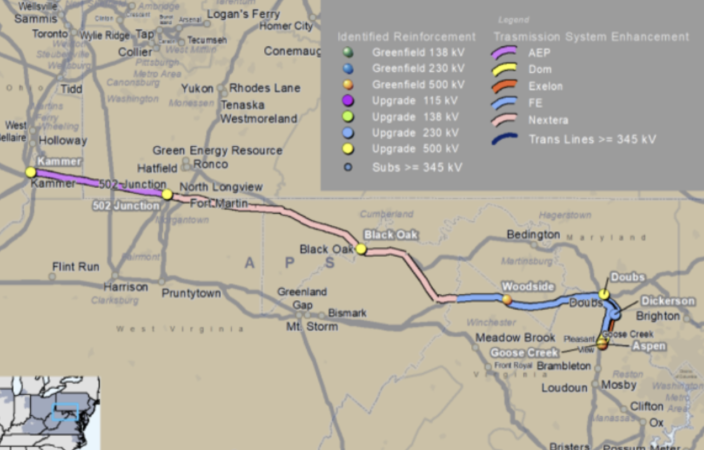



 RSS Feed
RSS Feed